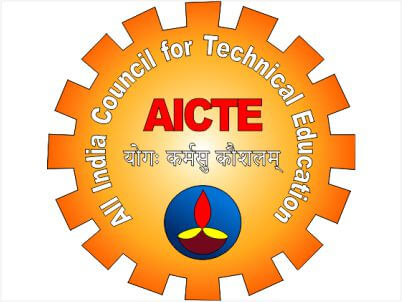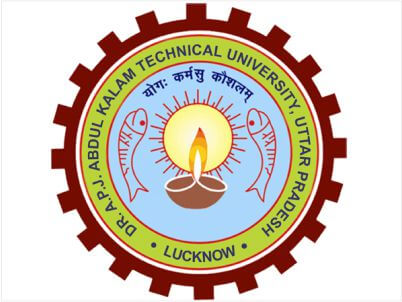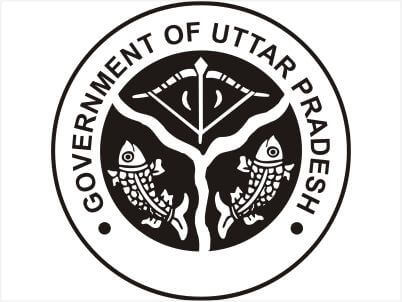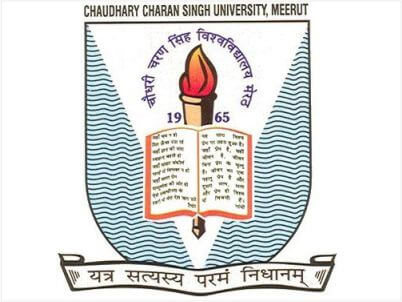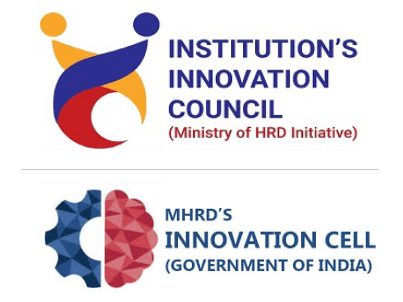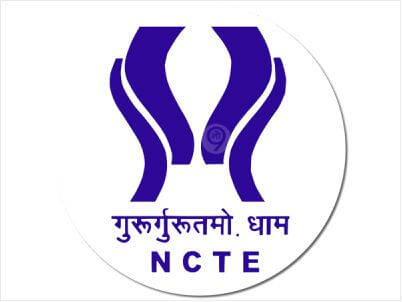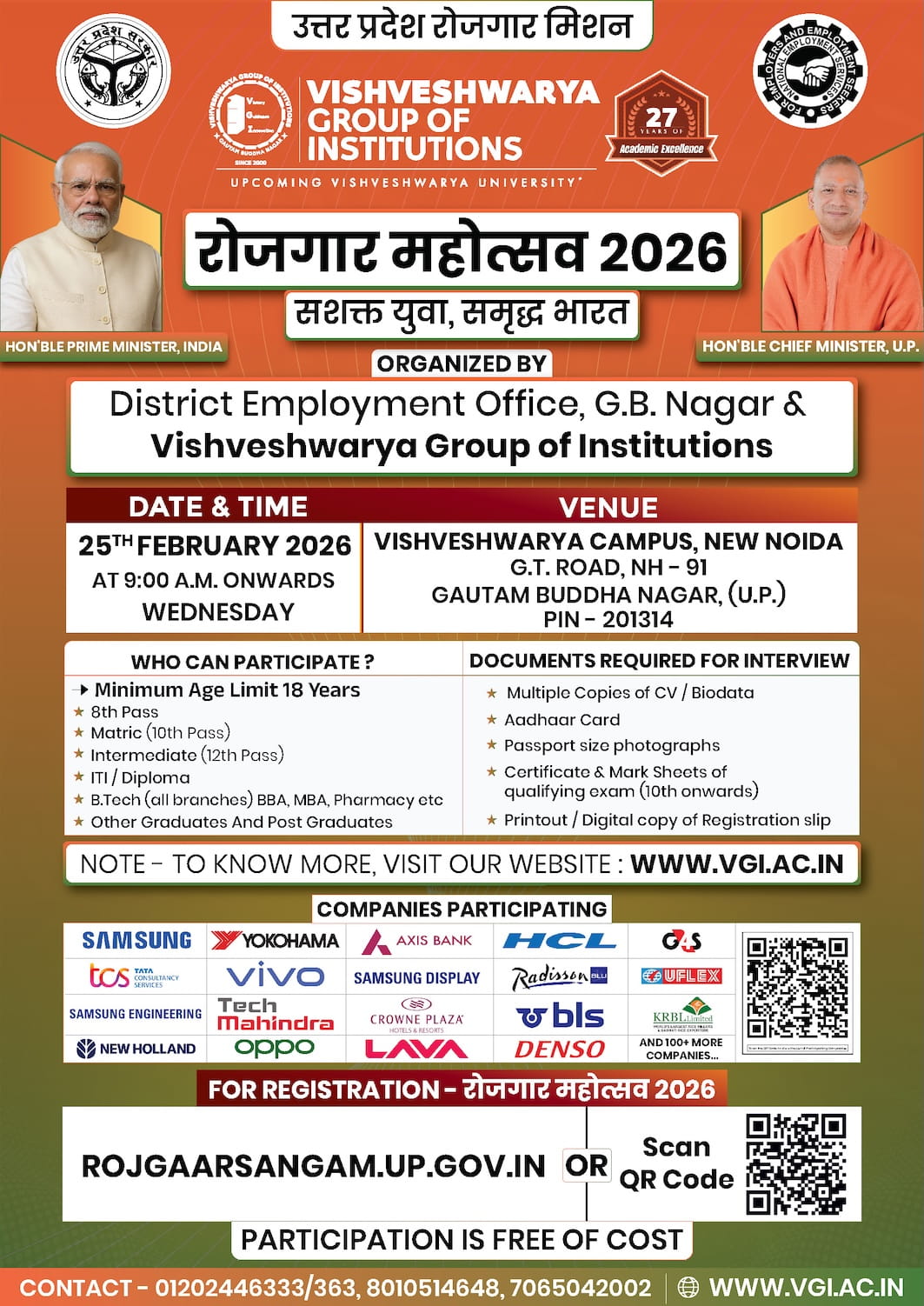B. Tech. - Employability
Computer Science & Engineering
Mode
Regular
Seats
60
Level
Graduate
Duration
4 Years
- Overview
- POs, PSOs and PEOs
- DAC
- Course Structure
- Certifications
- Labs
- Career Prospects
- Mode of Admission
- Eligibility
Vision
To produce Computer Science and Engineering graduates with problem-solving abilities, research aptitude, teamwork, and ethical values to meet the needs of industry and society. The department will strive to be the most effective research and innovative centre in the field of information and other fields focused on empowering people to provide scientific and social assistance.
Mission
The mission of the Computer Science and Engineering Department is to shape the students to be innovative, entrepreneurial, supportive, assured, and intellectual.
- To prepare students with strong technical skills and analytical minds for real time industrial needs.
- To nurture the students to contribute to research and innovation for nation building.
- To develop students with leadership qualities to be entrepreneurs and contribute their services to society.
Develop a student’s technical skills through innovation and leadership. Inculcate the values of work ethic, social concern, environmental protection, and lifelong learning.
Empowered by : CDAC, NASSCOM & Future Prime Skill
Approved by :Ministry of Electronics & Information Technology, Government of India
Computer Science Engineering (CSE) is one of the most popular courses among engineering aspirants which focuses on the basic elements of computer programming and networking. Students pursuing computer science courses will gain knowledge of design, implementation and management of information system of both hardware and software. CSE course deals primarily with the theory of computation and design of computational systems.
The Computer Science Engineering program at Vishveshwarya is prepared as per the current corporate needs. The program is based on three-way reading pedagogy with theory, practical in the high-standard laboratory, and live training sessions on the latest technologies. This program gives the opportunity to learn the latest technologies such as Artificial Intelligence, Robotics, Machine Learning, Blockchain, Cyber security, Full Stack Development, and Cloud-based technologies. Eligible students shall be placed with min. package of ` 5 lac^ per annum.
Program Outcomes (POs)
PO-1: Engineering knowledge: Utilize understanding of physics, math, engineering foundations, and engineering specialization to solve challenging engineering issues.
PO-2: Problem analysis: Identify, formulate, review research literature, and analyze complex computer engineering problems reaching substantiated conclusions using first principles of mathematics, natural sciences, and engineering sciences.
PO-3: Design/development of solutions: Design solutions for complex computer engineering problems and design system components or processes that meet the specific needs with appropriate considerations for the public health and safety, and the cultural, societal, and environmental considerations.
PO-4: Conduct investigations of complex problems: Use research-based knowledge and research methods including design of experiments, analysis and interpretation of data, and synthesis of the information to provide conclusions
PO-5: Modern tool usage: Create, select, and apply appropriate techniques, resources, and modern engineering and IT tools including prediction and modeling to complex engineering activities with an understanding of the limitations
PO-6: The engineer and society: Apply reasoning informed by the contextual knowledge to assess societal, health, safety, legal, and cultural issues and the consequent relevance to the professional engineering practices
PO-7: Environment and sustainability: Understand the impact of professional engineering solutions in societal and environmental contexts, demonstrate the knowledge of, and need for sustainable development
PO-8: Ethics: Apply ethical principles and commit to professional ethics, responsibilities, and norms of the engineering practices
PO-9: Individual and team work: Function effectively as an individual, and as a member or leader in diverse teams, and in multidisciplinary settings
PO-10: Communications: Communicate effectively on complex engineering activities with the engineering community and with society, such as being able to comprehend and write effective reports and design documentation, make effective presentations, and give and receive clear instructions
PO-11: Project management and finance: Demonstrate knowledge and understanding of the engineering and management principles and apply these to one’s own work, as a member and leader in a team, to manage projects and in multidisciplinary environments.
PO-12: Life-long learning: Recognize the need for, and have the preparation and ability to engage in independent and life learning in the broadest context of technological change.
Program Specific Outcomes (PSO)
PSO-1: (Proficiency in Real life problem solving, Algorithm Design) Exhibit professional ethics and implement the concepts of Computer Science & Engineering, Software Development, Problem solving techniques, and Algorithm Design and implementation with the state-of- the-art technology and contemporary skills.
PSO 2: (Proficiency in core technical areas of Computer Science & Engineering) To introduce upcoming domains like Big Data, Cloud Computing, Artificial Intelligence, Robotics, Data analytics, IoT, and Machine Learning to develop insights for problem solving.
PSO 3: (Proficiency in program Design and coding and analyses / interprets data) Implement and correlate their theoretical knowledge by program development, analysis of the problem, and analyse/interpret the results for appropriate conclusions and recommendations to a real-world software engineering problem with a significant perspective of the industrial, societal and real world.
Program Educational Objectives (PEOs)
PEO-1: Prepare graduates to have knowledge and competency for a career related to Computer Science.
PEO-2: Possess a solid technological background and the ability to assess data, formulate, and tackle industrial challenges to find workable solutions.
PEO-3: Make a prosperous career in research, industry, or higher education.
PEO-4: possess a passion for lifelong learning and the ability to work on interdisciplinary initiatives.
Department Advisory Committee
The Department Advisory Committee (DAC) has been formed to monitor the progress of the program. The Committee develops and recommends new or revised goals and objectives of the program. The DAC consists of HOD and faculty members of the department to evaluate the performance of a program review/monitor/assess a specific program. The Department Advisory Committee interacts and maintains liaison with key stakeholders.
- The Department Advisory Committee is chaired by HOD who receives the report of the Department Advisory Committee and monitors the progress of the program.
- The committee reviews the curriculum of the CSE department to ensure it aligns with the latest industry trends, technological advancements, and educational standards.
- The committee establishes mechanisms for assessing and evaluating student learning outcomes, including examinations, assignments, projects, and other assessment tools.
- The committee organizes workshops, seminars, and training sessions (NPTEL, Spoken tutorial, FDP, STTP / Guest lecturers monitoring) for faculty members to enhance their teaching skills, stay updated with the latest technologies, and improve their research capabilities.
- The DAC assesses the adequacy of infrastructure, including laboratories, classrooms, computing resources, and library facilities, to support the educational objectives of the department.
- The committee ensures the availability of academic support services for students, such as counselling, tutoring, and career guidance, to help them succeed academically and professionally.
- The DAC foster collaboration with industry partners to provide students with opportunities for internships, projects, and placements, ensuring that the curriculum remains relevant to the needs of the industry.
- The committee maintains records of all activities related to accreditation, including documentation of curriculum updates, assessment results, faculty development initiatives, and industry collaborations. They prepare reports for submission to the NBA accrediting body.
- The committee continuously monitors and evaluates the quality of education in the department, identifies areas for improvement, and implements corrective actions to enhance the overall quality of the program.
The following members are nominated and approved for the constitution of the Department Advisory Committee for the academic year 2023-2024.
| Sr. No | DAC Members | Designation & Organization | Position in DAC |
| 1 | Dr. Bibek Kumar | Associate Professor & Head, Department of Computer Science Engineering, VGI Group of Institutions. | Convenor |
| 2 | Dr. Waseem Khan | Associate Professor, Department of Computer Science Engineering, VGI Group of Institutions. | Member |
| 3 | Dr. Prachi Tripathi | Associate Professor and Head, Department of Electronics and Communication Engineering, VGI Group of Institutions. | Member |
| 4 | Dr. Shweta Chauhan | Post Doctoral Researcher, IIT Ropar | R&D Member |
| 5 | Mr. Ankit Sharma | Manager, D&E, NCS, Bharat Electronics Limited, Ghaziabad | Industry Expert |
| 6 | Dr. Vaibhav Sharma | Senior Director, Association of Data Scientists, Bangalore. | Industry Expert |
| 7 | Mr. Sagar Chandra | Deputy Manager, Reliance Industries Limited, Gurgaon | Alumni |
| 8 | Mr. Aniket | IV-year student, Department of CSE, VGI Group of Institutions | Student |
| Course Name/ Certification | Duration | Executed By | Certifying Organization | Certification Methodology | Content |
| Pre-Course Campus Immersion program | 15 days | Holistic PDP Team | CRC, VGI | Training succeeded by certified team |
|
| Programming for Problem-Solving | 40 hrs | Internal Faculty | AKTU | Class test followed by AKTU exam | As per AKTU Syllabus |
| Engineering Physics | 40 hrs | Internal Faculty | AKTU | Class test followed by AKTU exam | As per AKTU Syllabus |
| Engineering Mathematics-I | 40 hrs | Internal Faculty | AKTU | Class test followed by AKTU exam | As per AKTU Syllabus |
| Fundamentals of Electrical Engineering | 40 hrs | Internal Faculty | AKTU | Class test followed by AKTU exam | As per AKTU Syllabus |
| Environment and Ecology | 30 hrs | Internal Faculty | AKTU | Class test followed by AKTU exam | As per AKTU Syllabus |
| Engineering Graphics & Design | 20 hrs | Internal Faculty | AKTU | Class test followed by AKTU exam | As per AKTU Syllabus |
| C Programming | 70 hrs | Internal Faculty | NPTEL/Coursera | As per certifying Organizations |
32 hrs by Lectures + 32 hrs hands-on followed by 3 practice test Annexure 1 |
| Course Name/ Certification | Duration | Executed By | Certifying Organization | Certification Methodology | Content |
| Engineering Chemistry | 40 hrs | Internal Faculty | AKTU | Class test followed by AKTU exam | As per AKTU Syllabus |
| Engineering Mathematics-II | 40 hrs | Internal Faculty | AKTU | Class test followed by AKTU exam | As per AKTU Syllabus |
| Fundamentals of Electronics Engineering | 40 hrs | Internal Faculty | AKTU | Class test followed by AKTU exam | As per AKTU Syllabus |
| Fundamentals of Mechanical Engineering | 40 hrs | Internal Faculty | AKTU | Class test followed by AKTU exam | As per AKTU Syllabus |
| Soft Skills | 30 hrs | Internal Faculty | AKTU | Class test followed by AKTU exam | As per AKTU Syllabus |
| Workshop Practice Lab | 20 hrs | Internal Faculty | AKTU | Class test followed by AKTU exam | As per AKTU Syllabus |
| MS Office | 20 hrs | 20 Training and project Practice | CRC, VGI | Training –Practice succeeded by Test Conducted by Microsoft | Day to day uses, Report writing, Resume design, PPT preparations etc, |
| Course Name/ Certification | Duration | Executed By | Certifying Organization | Certification Methodology | Content |
| Data Structure | 40 hrs | Internal Faculty | AKTU | Class test followed by AKTU exam | As per AKTU Syllabus |
| Computer Organization and Architecture | 40 hrs | Internal Faculty | AKTU | Class test followed by AKTU exam | As per AKTU Syllabus |
| Discrete Structures & Theory of Logic | 40 hrs | Internal Faculty | AKTU | Class test followed by AKTU exam | As per AKTU Syllabus |
| Sensor & Instrumentation | 40 hrs | Internal Faculty | AKTU | Class test followed by AKTU exam | As per AKTU Syllabus |
| Technical Communication | 30 hrs | Internal Faculty | AKTU | Class test followed by AKTU exam | As per AKTU Syllabus |
| Python Programming (NumPy, Pandas, matplotlib, seaborn, sci-kit learn, pytourch, and tensorflow packages) | 50 hrs | Internal Faculty | NPTEL/Coursera | As per certifying Organizations | 50 Lectures followed by 3 practice tests. Annexure 2 |
| Data structure using C | 66 hrs | Internal Faculty | NPTEL/Coursera | As per certifying Organizations | 30 Lectures followed + 30 hrs hands-on followed by 6 hrs practice test. Annexure 3 |
| Course Name/ Certification | Duration | Executed By | Certifying Organization | Certification Methodology | Content |
| Introduction to Soft Computing | 40 hrs | Internal Faculty | AKTU | Class test followed by AKTU exam | As per AKTU Syllabus |
| Operating Systems | 40 hrs | Internal Faculty | AKTU | Class test followed by AKTU exam | As per AKTU Syllabus |
| Theory of Automata and Formal Languages | 40 hrs | Internal Faculty | AKTU | Class test followed by AKTU exam | As per AKTU Syllabus |
| Microprocessor | 40 hrs | Internal Faculty | AKTU | Class test followed by AKTU exam | As per AKTU Syllabus |
| Technical Communication | 30 hrs | Internal Faculty | AKTU | Class test followed by AKTU exam | As per AKTU Syllabus |
| Java (Group-1) | 60 hrs | Internal Faculty | NPTEL/Coursera | As per certifying Organizations | Annexure-4 |
| Machine Learning using Python (Group-2) | 60 hrs | Internal Faculty | NPTEL/Coursera | As per certifying Organizations | Annexure-5 |
| Full Stack Development (Group-3) | 60 hrs | Internal Faculty | NPTEL/Coursera | As per certifying Organizations | Annexure-6 |
| 30 hours hands-on DBMS (Common) | 60 hrs | Internal Faculty | NPTEL/Coursera | As per certifying Organizations | Annexure-7 |
| Course Name/ Certification | Duration | Executed By | Certifying Organization | Certification Methodology | Content |
| Database Management System | 40 hrs | Internal Faculty | AKTU | Class test followed by AKTU exam | As per AKTU Syllabus |
| Compiler Design | 40 hrs | Internal Faculty | AKTU | Class test followed by AKTU exam | As per AKTU Syllabus |
| Design and Analysis of the Algorithm | 40 hrs | Internal Faculty | AKTU | Class test followed by AKTU exam | As per AKTU Syllabus |
| Data Analytics (DE-1) | 40 hrs | Internal Faculty | AKTU | Class test followed by AKTU exam | As per AKTU Syllabus |
| Machine Learning Techniques (DE-2) | 30 hrs | Internal Faculty | AKTU | Class test followed by AKTU exam | As per AKTU Syllabus |
| Constitution of India, Law, and Engineering | 30 hrs | Internal Faculty | AKTU | Class test followed by AKTU exam | As per AKTU Syllabus |
| Java, DevOps, Data analyst, Cloud Analyst training by HCL Technologies and Embedded Developer by CDAC Noida | |||||
| Course Name/ Certification | Duration | Executed By | Certifying Organization | Certification Methodology | Content |
| Software Engineering | 40 hrs | Internal Faculty | AKTU | Class test followed by AKTU exam | As per AKTU Syllabus |
| Web Technology | 40 hrs | Internal Faculty | AKTU | Class test followed by AKTU exam | As per AKTU Syllabus |
| Computer Networks | 40 hrs | Internal Faculty | AKTU | Class test followed by AKTU exam | As per AKTU Syllabus |
| Big Data | 40 hrs | Internal Faculty | AKTU | Class test followed by AKTU exam | As per AKTU Syllabus |
| Object Oriented Programming | 30 hrs | Internal Faculty | AKTU | Class test followed by AKTU exam | As per AKTU Syllabus |
| Indian Tradition, Culture and Society | 30 hrs | Internal Faculty | AKTU | Class test followed by AKTU exam | As per AKTU Syllabus |
| Java, DevOps, Data analyst, Cloud Analyst training by HCL Technologies Embedded Developer by CDAC Noida | |||||
15 DAYS Pre-Placement Training
| Subject | Duration | No of quizzes |
| Python Programming | 20 hrs | 10 (30 questions each) |
| Data Structure and Algorithm | 20 hrs | 10 (30 questions each) |
| Java Programming | 20 hrs | 10 (30 questions each) |
| Quantitative aptitude | 20 hrs | 10 (30 questions each) |
| Logical Reasoning | 20 hrs | 10 (30 questions each) |
| DBMS | 20 hrs | 10 (30 questions each) |
| OS | 20 hrs | 10 (30 questions each) |
| Course Name/ Certification | Duration | Executed By | Certifying Organization | Certification Methodology | Content |
| Distributed System | 40 hrs | Internal Faculty | AKTU | Class test followed by AKTU exam | As per AKTU Syllabus |
| Artificial Intelligence | 40 hrs | Internal Faculty | AKTU | Class test followed by AKTU exam | As per AKTU Syllabus |
| Embedded Systems | 40 hrs | Internal Faculty | AKTU | Class test followed by AKTU exam | As per AKTU Syllabus |
| Blockchain Architecture Design | 40 hrs | Internal Faculty | AKTU | Class test followed by AKTU exam | As per AKTU Syllabus |
| Cloud computing | 30 hrs | Internal Faculty | AKTU | Class test followed by AKTU exam | As per AKTU Syllabus |
| Industrial Training | |||||
| Project (As per the specialization opted by the student) | |||||
| Java, DevOps, Data analyst, Cloud Analyst training by HCL Technologies Embedded Developer by CDAC Noida | |||||
| Course Name/ Certification | Duration | Executed By | Certifying Organization | Certification Methodology | Content |
| Entrepreneurship Development | 40 hrs | Internal Faculty | AKTU | Class test followed by AKTU exam | As per AKTU Syllabus |
| Image Processing | 40 hrs | Internal Faculty | AKTU | Class test followed by AKTU exam | As per AKTU Syllabus |
| Deep Learning | 40 hrs | Internal Faculty | AKTU | Class test followed by AKTU exam | As per AKTU Syllabus |
| Seminar related to their specialization | |||||
| Major Project (As per the specialization opted by the student) | |||||
| Java, DevOps, Data analyst, Cloud Analyst training by HCL Technologies Embedded Developer by CDAC Noida | |||||
| Semester | Name of the Program/Training | Certification Y/N | Coordinated By |
| 1 | Campus Induction Program | CRC, VGI Score card | CRC, VGI |
| 1 | Fundamentals of Programming Using C Languagae | NPTEL | IIT Kanpur |
| 1 | Critical Thinking | CRC, VGI | CRC, VGI |
| 1 | Educational Tour | N | NA |
| 2 | Microsoft 365 | CRC VGI | Microsoft |
| 2 | Python Programming | Corse Era | University of Michigan,USA |
| 3 | Data Structure Using C | NPTEL | IIT Ropar |
| 4 | JAVA (Group1) | Coursera | LearnQuest |
| 4 | Machine Learning Using Python (Group2) | Coursera | Stanford University, California, USA |
| 4 | Full Stack Development (Goup3) | Corse Era | IBM |
| 4 | DBMS | NPTEL/Course Era | IIT Kharagpur |
| 5 & 6 | JAVA | HCL Futurum | HCL Futurum |
| 6 & 6 | Dev-Ops | HCL Futurum | HCL Futurum |
| 7 & 6 | Data Analyst | HCL Futurum | HCL Futurum |
| 8 & 6 | Cloud Analyst | HCL Futurum | HCL Futurum |
| 8 &6 | Embeded System Design | C-DAC | C-DAC |
- Digital Image Processing Lab
- Web Technology Lab
- Data Structure Lab
- DMBS ( Database Management System) Lab
- Computer Network Lab
- Principals of Programming Language (PPL) Lab
- Algorithm Lab
- Network Security Lab
- Python Lab
- C & C++ Lab
- Data Mining Specialist
- Data Scientist
- Data Architects
- Machine Learning Engineering
- Artificial Intelligence Engineering
- AI Data Analyst
- Business Intelligence Developers
- Central Government ( Scientists jobs in DRDO, ISRO, BARC etc)
- State Government jobs
- PSUs ( PGCIL, ONGC, MTNL/BSNL,NTPC, etc)
- Software MNC's Jobs (Microsoft, Infosys, Oracle, TCS, Tech Mahindra, Wipro, Accenture, HCL, NIIT etc.)
- For higher studies, options are available in India and aboard for - Ph.D/MS/M.Tech etc.
UPSEE/JEE (Mains)/ Vishveshwarya Entrance Test / or any other National level Test as per University norms
- Eligibility :12th passed in PCM with agg. 50% for Gen./OBC, 45% for SC/ST or Eligibility Criteria as per University Norms/ VET (Vishveshwarya Entrance Test)

